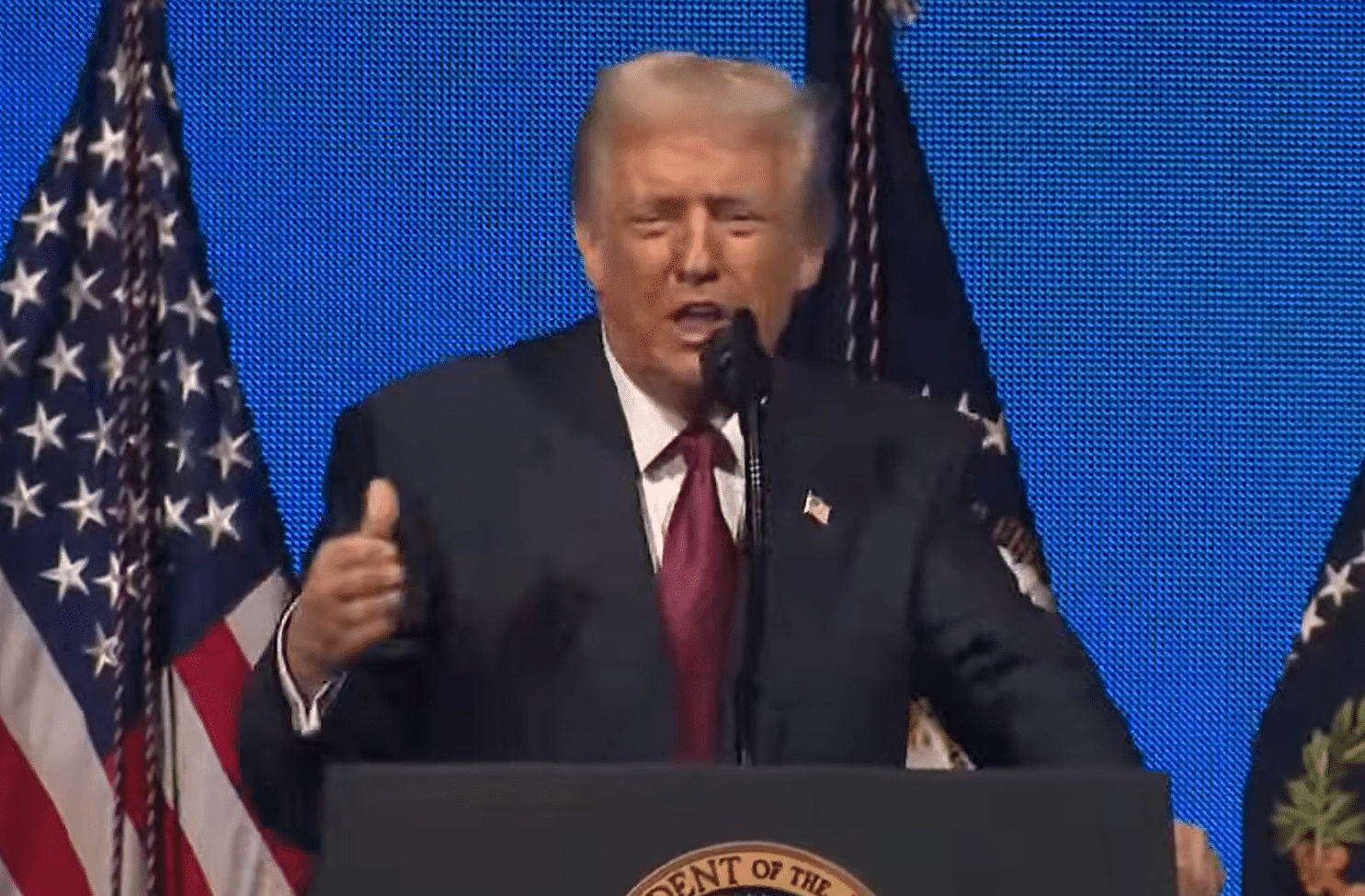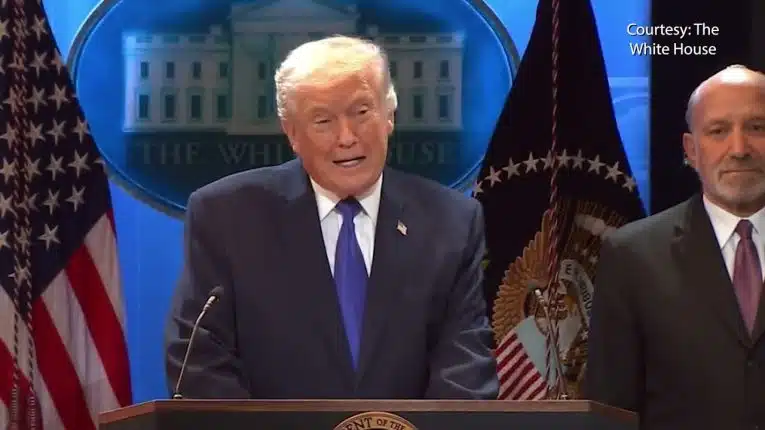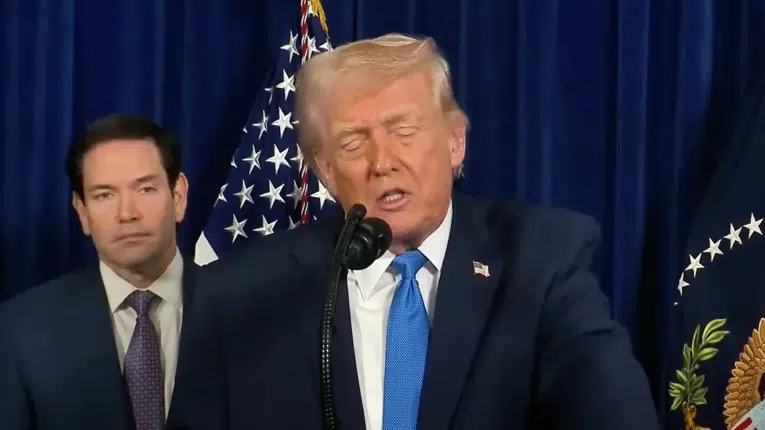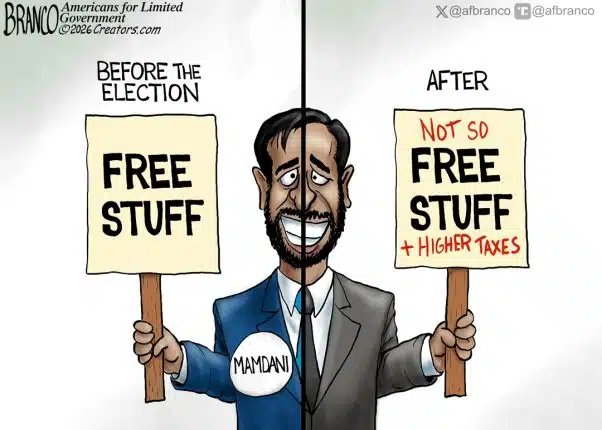
“And I tell Republicans, you want to win elections, you got to talk about these facts. You know, it’s really easy to win elections when you talk about the facts.”
That was President Donald Trump reacting on Nov. 5 to the results of the Virginia, New Jersey and New York City off-year elections, and touting his administration’s economic record including softening inflation one year after Republicans won the White House, House and Senate in historic fashion.
President Trump is right about two things: Inflation is definitely improving, particularly as it compares to incomes, and, judging by recent polling, Republicans are definitely doing a poor job of letting the American people know that the worst is long behind them.
A year ago, even with inflation cooling from its June 2022 peak of 9.1 percent, voters consistently rated inflation and the economy as the top issue in the elections, one of the principal reasons President Trump and Republicans defeated former President Joe Biden and former Vice President Kamala Harris.
First, on the numbers themselves, the past twelve months, personal income has risen about 5 percent, while consumer prices have only risen 3 percent.
In fact, that’s been true since the beginning of 2023, where income would consistently rise faster than inflation as Americans’ household budgets have gradually improved. But for almost the entire year of 2022, it wasn’t true. And around election time in 2024, voters remembered.
Biden’s approval rating on the economy was about 40 percent and disapproval about 55 percent to 60 percent. As you might expect, Democrats fared very poorly as swing voters punished Biden and then Harris who replaced Biden on the ballot.
Now, oil is down at around $60 a barrel, while a year ago it was $72, and with it gas prices are easing. So far, so good.
But today, using the same metrics, even with inflation continuing to cool versus incomes, the President’s approval on the economy today averages 41 percent, and disapproval is about 55 percent.
Every election is a referendum on the incumbents, and now the shoe’s on the other foot with the 2026 Congressional midterms less than a year away. Perception is everything. Inflation is cooling, but are the American people feeling it? And fast enough?
If you look at the last Economist-YouGov poll taken in October 2024, on inflation specifically, 58 percent disapproved of Biden and only 33 percent approved: 93 percent of Republicans as you might guess disapproved, but so did 61 percent of independents and, critically, 23 percent of Democrats disapproved.
Well, now the numbers are completely reversed. In the Oct 19 to Oct. 22 Economist-YouGov poll taken, now 64 percent disapprove of Trump on inflation and only 31 percent approve: 94 percent of Democrats as you might guess disapprove, but so do 72 percent of independents and, critically, 25 percent of Republicans disapprove.
It’s the same poll with the same result, but with a different president. The common thread is a significant percent of the incumbent party registering dissatisfaction plus an overwhelming number of independents. Joe Biden tried to tell his story, too. It didn’t work.
So far, there has been zero improvement on the politics of this. The policies are pretty good: Import eggs, boosting oil production, increasing electricity output, working with OPEC to increase global supplies, supply side tax cuts to boost domestic production and so forth. Interest rates are coming down compared to our peers, as Treasury Secretary Scott Bessent noted today on X.com.
But the public is not feeling it enough. Costs went up too high, too fast, and have been too slow to come down while our incomes catch up. Inflation and most importantly independents do not care about party. Economically, Milton Friedman wrote “inflation is the cruelest tax”. And in politics that is doubly true.
Throughout 2024, I warned in this column that inflation is a majority killer, because it is. Whenever inflation specifically outpaced incomes, it took out Gerald Ford, Jimmy Carter, George H.W. Bush and Joe Biden, leading to their party’s defeats. In the 1970s, it took out two presidents in a row!
More broadly, the economy can make any presidency a one-term proposition. When the economy is unstable, so is our politics.
In 2024, inflation — and the memory of it — made it much more likely that President Trump would be reelected to non-consecutive terms and that Republicans would win both chambers of Congress. In 2025, in New York City, it made it possible to elect a Democratic socialist for mayor, and that the Democratic candidates for governor in New Jersey and Virginia would overperform and wind up with unexpected double-digit wins.
And in 2026, if Republicans cannot tell their story on inflation — they have a great story to tell with the worst long behind us but there is still more to do — it will put not only the House but the Senate well into play. If that perception continues, in 2028, the White House will easily be in play again, too.
Here’s the good news: Incomes have been outpacing inflation since 2023 so over the long term the American people will feel relief. The bad news: The American people are still not happy about it. The reality, and more bad news: These episodes usually end with a recession, although some evidence suggests we may have already had one that ended in 2024, for example if you follow the Sahm rule, defined by the Federal Reserve as “when the three-month moving average of the national unemployment rate (U3) rises by 0.50 percentage points or more relative to the minimum of the three-month averages from the previous 12 months.” That happened in July, August and September of 2024.
From a policy perspective there is still a little time, but not a lot, to decisively move the needle on inflation and to alter public perceptions before next fall.
Friedman defined inflation as too much money chasing too few goods. The Fed has been taking care of the too much money part for three years with the increased interest rates (it started too late) but the too few goods part remains a problem following the Covid production lockdowns.
The President has rightly mentioned beef and the possibility of a temporary trade deal with Argentina to get prices down in the short term. Yes, more of that, Mr. President. This is what trade is for: To buy more of what we need. We need your art of the deal.
Long term, Department of Agriculture data show the cow population was decimated during the Biden administration. We need more cows. I’d say to import several herds but it’d probably bring disease and then you’d have a bigger problem.
Either goods will flood into markets and bring the prices down that need to come down fast enough for people to notice, or voters will flood into polls until they find a party that can fix the problem.
This might appear counterintuitive from a trade protection perspective. It is not. The commodities the American people need to get prices down the most are largely coming in energy and agriculture. We need more energy and especially electricity. We need more food. That’s what the American people feel the most when they go shopping every week.
Shelter too but that’s largely impacted locally. Everyone in New York knows the homes are cheaper out of state. During and after Covid the Fed bought mortgage securities for no reason, driving the price of housing to the moon. Maybe keep dumping those, I don’t know why the Fed stopped, it has nothing to do with the unemployment rate. As for overall interest rates, those will be impacted just by moving baseline treasuries and interbank lending rates down.
No majority can survive sustained inflation. However fast the President wants the American people to get relief, it’s still not nearly fast enough with 2026 rapidly looming. It’s time for a course correction. Focus on food. Because, the only thing stickier than incumbency is inflation — and the memory of it.
Robert Romano is the Executive Director of Americans for Limited Government Foundation.






